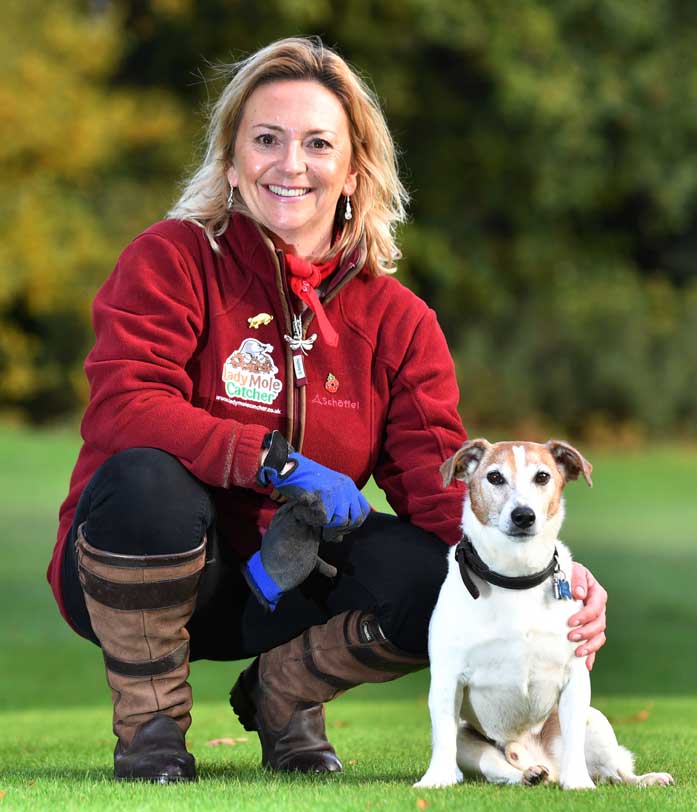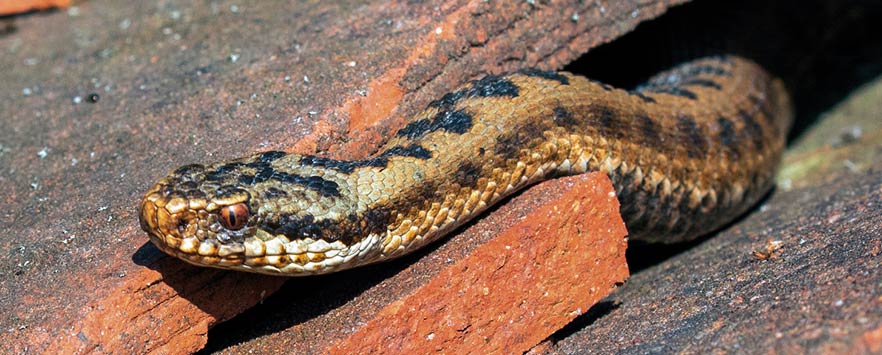False Widow Spider control
Lady Mole Catcher is also qualified to deal with False Widow Spiders. As a professional wildlife management specialist, she has the knowledge and skills to deal with these invasive species, which may cause problems on a property or in public area.
What are False Widow Spiders?
With a body length of 10-15mm (female) and 3-6mm (male), the False Black Widow Spider is shiny black but does not have the red double triangle marking of its more dangerous cousin. It’s believed that Steatoda nobilis was introduced to the UK in the 1880s from the Canary Islands. Spreading north and east since then, it has been spotted as far apart as North Norfolk and South Wales. Two species of False Widow Spider (Steatoda grossa and Steatoda bipunctata) are now widespread across the UK.
How do you know if you have False Widow Spiders on your property?
Commonly found in sheds, porches and homes, it can be difficult to categorically identify a False Widow Spider. It will spin a loose tangle of non-sticky webbing with the addition of a tube of silk leading into a space where it can hide during daylight hours. Usual locations for these webs include window and door frames, eaves, pipes, gutters and outbuildings. Increasing in numbers during the warmer months, by late summer and autumn False Widow Spiders will become more noticeable as the males wander to look for a mate.
There are a few issues to consider if you discover False Widow Spiders on your property or in a public area:
- It is one of the very few spiders in the UK which can bite
- It is the only species of spider whose venom can affect humans
- It is not aggressive and will not attack people unless it is under threat
- It has a bite which can cause a reaction similar to a wasp sting, although the effects can be longer-lasting and extend beyond the site of the initial puncture wound
- It is mostly likely to be seen in Autumn, particularly during October
- A non-native species, it is now more widespread across the UK (probably due to climate change)

Louise Chapman BA (Hons) PGCE
Norfolk’s very own Lady Mole Catcher®
Who I work with
- Householders in their gardens
- Farmers and Land Agents
- Outdoor Leisure Facilities
- Businesses
- Restaurants and Pubs
- Schools/Colleges
- Local Authorities
If you spot a False Widow Spider on your property or in a public area, get in touch with Louise to arrange for a site survey or consultation. Call 01603 25 99 45 or 07876 14 11 53 or email louise@ladymolecatcher.co.uk

